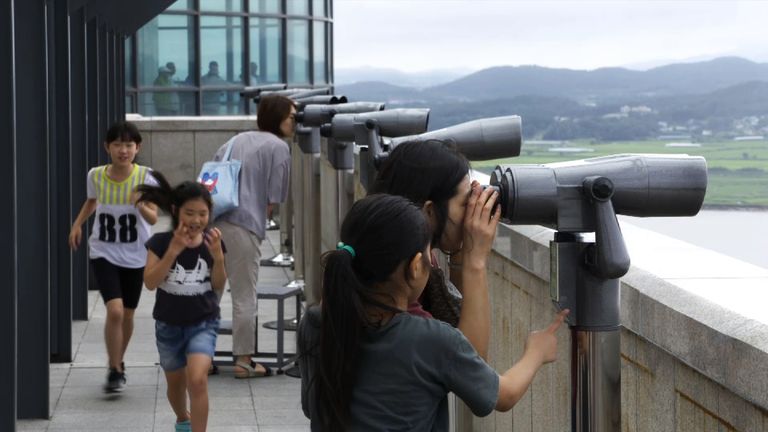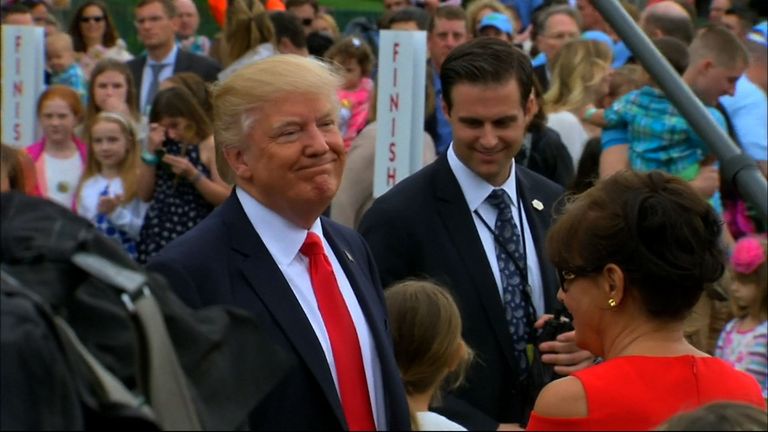Propaganda, music and sightseeing at the Korean border
Tourists at the border say they don't believe war will break out - but there is nervousness over President Trump's approach.
Thursday 10 August 2017 18:12, UK
Through the mist, on the far side of the Imjin River, we could make out guard posts in North Korea.
Two men in uniform moved slowly through the fields beyond.
Drifting across the water towards us, came the sound of North Korean martial music, blaring out at the South from loudspeakers.
The two Koreas trade music and propaganda messages throughout the day - a local version of the shouting match currently taking place between Washington and Pyongyang.
But for all the bellicose rhetoric there, and the threats of fire and fury, there is no expectation here of imminent conflict.
The two Koreas are technically still at war, with only a truce, not a peace treaty in place, but that has been the case here for the last 64 years.
We watched a steady stream of tourists peer across from the viewing platform of the Odusan observatory on the border, built as "a place to soothe the homesickness of the displaced persons from North Korea."
"The percentage of war happening on the Korean peninsula is less than 30% in my opinion," Seoul-based architect Choi Yong Gyu told us.
"But I do think there is a greater chance of war beyond the Korean peninsula."
"I regret, unlike Obama, he (Trump) is not working to make the world a better place," Park Gee Yong said, as she looked through the binoculars with her daughters.
This proximity is a large part of the reason no US president has authorised military action against the North since the end of the Korean War.
Pyongyang doesn't need intercontinental ballistic missiles to be able to threaten South Korea, an American ally.
The 25 million civilians in the greater Seoul area, and the tens of thousands of US troops stationed here, are already within range of the vast array of conventional weaponry positioned on the far side of this border.
The likely devastating retaliation has been enough to rule out even the most targeted of strikes to date.
There is no sense here that is about to change.
A blue sign by the entrance to the observatory warns that, "because of the site's close proximity to North Korea, it could be exposed to danger if the North were to take rash military actions."
It details how to get to the underground shelter if the siren sounds, but nobody is expecting to have to use it.







